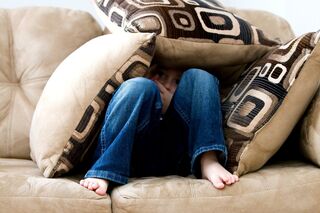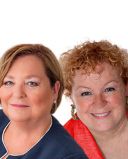Adult children who grew up in hoarded homes consistently express that they feel displaced by and less important than the “stuff.” Many feel they lost their childhood by having to assume non-age appropriate responsibility for their parents’ choices. Their anxiety and shame fueled efforts to make space for a more “normal” family life to happen “like other people’s houses.” They felt marginalized by the need to keep the “secret” and avoid detection.
Another common memory is being hyper-vigilant about potential looming crises, and like mini-adults, trying to come up with ways to prevent them. Children too young to be left alone assumed the responsibility for protecting their family, especially younger siblings.

Irrefutably, parents who hoard have complex challenges; blaming them is not helpful. The lack of and cost of appropriate treatment and support leave most people who hoard overwhelmed, unavailable, and lost among the piles. Being unsupported with untreated hoarding behavior often leaves these struggling individuals to create a legacy for their children of unresolved loss, failure to meet normal developmental milestones on time, impaired self-esteem, and especially undeveloped social skills.
What Experiences Have Children of Hoarders Expressed?
- “I felt isolated because we couldn’t have sleepovers and birthday parties. I felt nervous about accepting invitations to friends’ homes because I knew I couldn’t invite them to mine. Soon, I stopped even being invited because I looked like I didn’t want to hang out with them, only because I could never reciprocate.”
- “We often had to lie or not tell the whole truth when asked, so that we could keep it secret.”
- “I often felt disloyal and sad for hating my home and sometimes even my parents and wanted to get away from the mess. I kept my side of my shared bedroom neat and clean and scrupulously orderly.”
- “Kids laughed at me on the bus about my Dad’s stuff in the front yard. He had a collection of metal and rusted car parts everywhere outside.”
- “Money was tight because Mom was always bringing home 'bargains.'”
- “I never felt that I could count on anything being certain. I felt like I was always trying to figure out how normal kids would act, so no one would know my family wasn’t like theirs.”
- “There was no clear surface for me to do homework and store school supplies. I cleared off the table to make room. By the next day, it was filled up again.”
How Can Adult Children of Hoarded Homes Move Forward?
Know that you are not alone. Accountability is not blaming. The adults were responsible for the conditions you lived in and the stresses you had to manage.
We are all more than the problems we have and the labels others (by being misinformed) apply to us.
- Find hoarding-informed counseling support specific to the needs of adult children of hoarded homes. Nathaniel Brandon, in his book Six Pillars of Self-Esteem, can support you with the following: living consciously, self-acceptance, self-responsibility, self-awareness, living purposefully, personal integrity; all foundational pieces for effectively setting boundaries and limits and developing healthy self-esteem.
- Learn and practice practical strategies to manage daily life, like space management, managing your own acquiring and saving habits, learning how to make “I can live with it” decisions about keeping and letting go of things. These skills prevent you from creating an internal void or longing which then demands filling, usually by what is available rather than what actually meets the need. Children are prone to mirroring the parents’ unhealthy attachment to things (or may do the exact opposite and become adults who are ultra-minimalist, with no attachments). We all have and need healthy attachments. Having none is a correction gone too far.
- To the extent that your parent and you share comorbid factors, the parent is frequently unable to be an effective model of the skills needed to self-manage the hurdles created by your shared comorbidity; e,g., ADD, ADHD, depression, anxiety, OCD, addiction, to name a few.
Live Forward from Today
Know that children who grew up in hoarded homes frequently cannot reach developmental milestones due to the lack of space to have age-appropriate experiences within the home; i.e., to play safely, socialize with others their own age, participate in normal celebrations, share family connection by sitting together at dinner time, do homework, have privacy, or have a parent who can be reliably available and present for them.
Now that you are an adult, begin by acknowledging your own needs and respecting your right to have them. Become your own parent, setting healthy boundaries and limits, thereby respecting the needs you have today and moving forward, and knowing that you deserve that others do the same.
References
Branden, Nathaniel. 1995. Six Pillars of Self-Esteem: The Definitive Work on Self-Esteem by the Leading Pioneer in the Field. Bantam.


